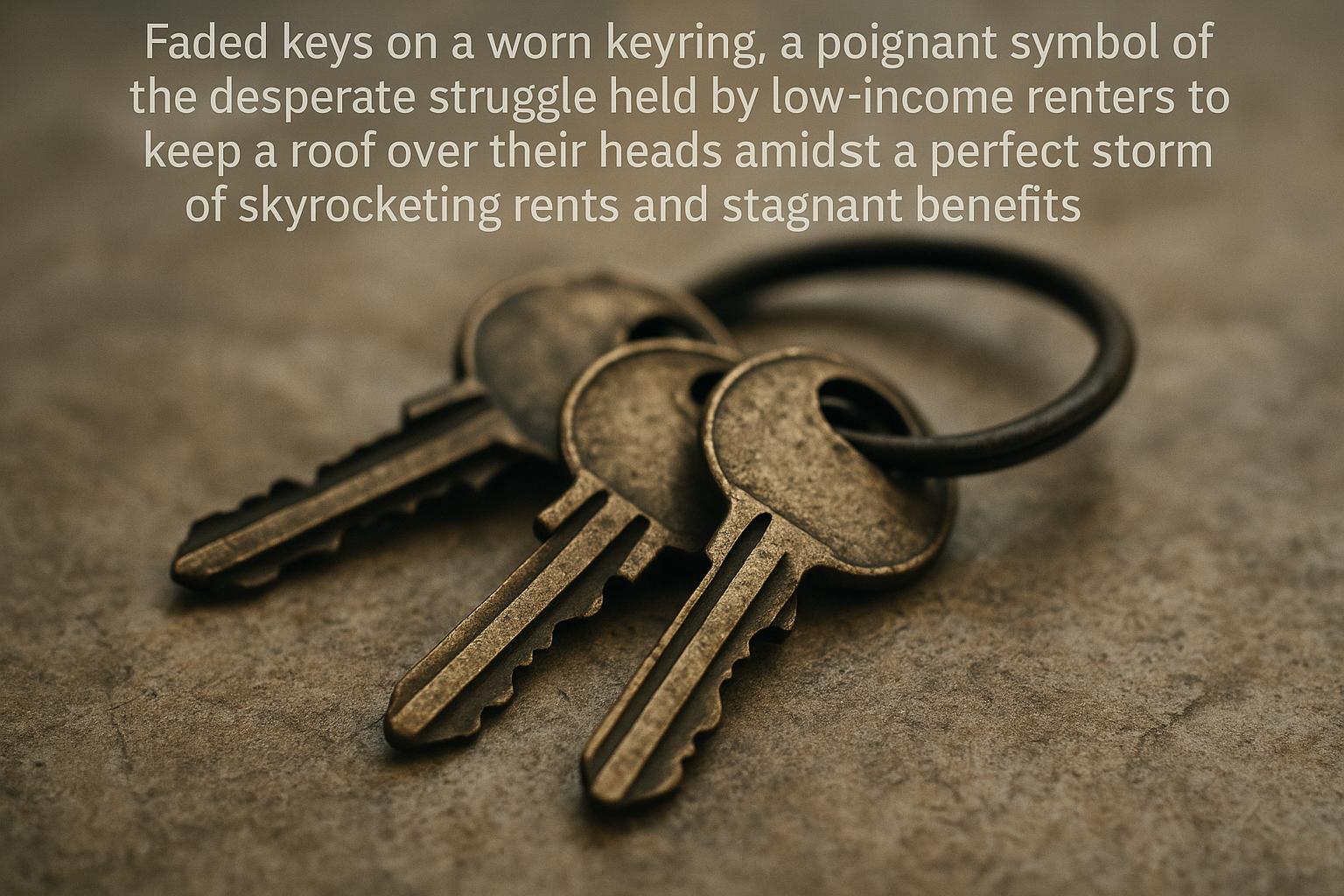Rapid rent increases coupled with a prolonged freeze on housing benefits are intensifying a crisis for low-income renters across the UK, with experts warning of escalating financial hardship and a surge in homelessness if urgent government action is not taken. A recent report by the Resolution Foundation highlights the widening affordability gap between Local Housing Allowance (LHA) rates—the benchmark for housing benefits—and actual private rental prices, a gap that could reach a record 25 per cent by 2029-2030.
The LHA system, which is designed to ensure housing benefit covers at least the cheapest 30 per cent of local rents, has been effectively frozen by the current Labour government until at least 2026, following only a brief uplift scheduled for April 2024. This freeze contrasts sharply with the sharp rise in rental costs: rents have surged by 14 per cent since September 2023 alone and by over 20 per cent since the LHA rates were last adjusted in 2020. According to data from the Office for National Statistics, the growing shortfall between housing support and actual rents has pushed nearly two million low-income families to the brink, with many increasingly reliant on costly temporary accommodation. The number of children living in such emergency settings reached a record 172,420 by mid-2023.
The financial implications for local authorities are stark. The cost of temporary accommodation has doubled over the past decade, with councils last year facing a bill of £2.8 billion to manage emergency housing needs. The Resolution Foundation estimates that unfreezing the LHA would require an additional £2.5 billion annually, but argues that maintaining the freeze to achieve short-term government savings is a “false economy” that ultimately risks greater social and fiscal costs.
The affordability gap is particularly severe in London, where some boroughs like Hackney see shortfalls averaging around £350 per month. However, the crisis is nationwide: there is not a single local authority in England without an average housing benefit shortfall of at least £100, underlining the widespread nature of the problem.
Housing and homelessness charities express deep concern about the human cost of the freeze. Francesca Albanese, executive director of policy and social change at Crisis, described the freeze as “damaging” and called for urgent intervention in the upcoming Budget to prevent more families being pushed into poverty and homelessness. She emphasised the importance of ending what she termed the damaging cycle of partial support that still leaves families unable to afford both rent and essentials like food and heating.
Advocates and organisations have united in calls for the government to permanently re-link housing benefit rates to local rent levels. The Joseph Rowntree Foundation and the Chartered Institute of Housing, along with a coalition of over 40 bodies, have formally urged ministers to lift the freeze. Research cited by this coalition suggests that adjusting LHA rates to match rental realities could pull as many as 75,000 children and 125,000 adults out of poverty.
Further analysis from the Institute for Fiscal Studies backs these demands, reporting that the proportion of private rental properties affordable to housing benefit recipients has plummeted from 23 per cent to just 5 per cent since the freeze began. The National Residential Landlords Association adds that nearly half of private renters dependent on benefits already face rental shortfalls, which the upcoming freeze is set to worsen, threatening their ability to secure stable tenancies.
In response to the mounting pressure, a government spokesperson reiterated commitment to tackling housing issues through promises to build 1.5 million new homes, including a substantial increase in social and affordable housing. They also highlighted efforts to raise other benefits, reform universal credit deductions, and support pathways out of poverty via employment. However, the spokesperson did not directly address calls to lift or unfreeze the Local Housing Allowance.
The escalating disparity between housing benefits and rent levels spotlights a critical challenge for the UK government amidst a cost-of-living crisis and housing shortage. Without recalibrating housing support to reflect current rental markets, the risk of pervasive homelessness and deepening poverty among vulnerable families looms large, demanding urgent policy intervention.
📌 Reference Map:
- Paragraph 1 – [1] The Independent, [2] Resolution Foundation
- Paragraph 2 – [1] The Independent, [2] Resolution Foundation, [5] Institute for Fiscal Studies
- Paragraph 3 – [1] The Independent, [2] Resolution Foundation
- Paragraph 4 – [1] The Independent, [2] Resolution Foundation
- Paragraph 5 – [1] The Independent
- Paragraph 6 – [1] The Independent, [4] Joseph Rowntree Foundation, [6] Chartered Institute of Housing
- Paragraph 7 – [5] Institute for Fiscal Studies, [7] National Residential Landlords Association
- Paragraph 8 – [1] The Independent
- Paragraph 9 – [1] The Independent
Source: Noah Wire Services
